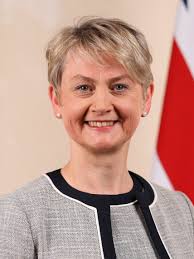
Introduction
In recent months, Yvette Cooper has emerged as a prominent figure in UK politics, especially within the Labour Party. Her extensive experience, having served in various high-profile government roles, makes her a key player in current political debates surrounding economic recovery, social welfare, and equality. As the cost-of-living crisis continues to challenge households across the country, Cooper’s voice and actions have become increasingly relevant to both her party and the UK electorate.
Political Career and Background
Yvette Cooper was first elected as the Member of Parliament (MP) for Normanton, Pontefract and Castleford in 1997. Over the years, she has taken on multiple significant roles, including Secretary of State for Work and Pensions and Minister for Housing. Known for her advocacy for social justice and equality, Cooper has consistently worked on policies that aim to elevate the standard of living for all citizens.
Recent Developments
In light of the ongoing cost-of-living crisis which has been exacerbated by factors such as rising inflation and energy prices, Yvette Cooper has been vocal in her criticism of the current government’s approach. She has urged for more substantial support for vulnerable families and has called for a comprehensive review of welfare policies. Recently, during parliamentary sessions, Cooper presented data indicating that proposed welfare cuts could drastically affect millions of families, calling for urgent action from the government.
Cooper has also recently called for the government to reconsider its policies on housing, stating that immediate reforms are necessary to ensure access to affordable housing remains a reality for many Britons. Her proposals, which include increasing investment in social housing, have garnered both support and criticism from different factions within the political landscape.
Conclusion
Yvette Cooper’s role in the current political scene cannot be understated. With her experience and determined advocacy for social issues, she is likely to remain a central figure in discussions surrounding economic policy and welfare reforms in the UK. As the Labour Party positions itself ahead of the next general election, Cooper’s perspectives and proposed policies will be crucial in shaping the party’s platform. Observers of UK politics should watch closely how her proposals evolve and whether they resonate with a broader constituency, potentially positioning her as a leading voice for change in these challenging times.
You may also like

The Evolving Role of the Manager in Modern Business

Understanding the Current Political Landscape in the UK

The UKIP Party: Recent Developments and Future Outlook
SEARCH
LAST NEWS
- Remembering Wendy Richard: The Promise to Co-Star Natalie Cassidy
- How Did Anglian Water Achieve an ‘Essentials’ Rating for Mental Health Accessibility?
- Shai Hope Leads West Indies in T20 World Cup Clash Against South Africa
- What We Know About Weston McKennie: Future at Juventus and Past at Leeds
- What We Know About the Upcoming Live Nation Antitrust Trial